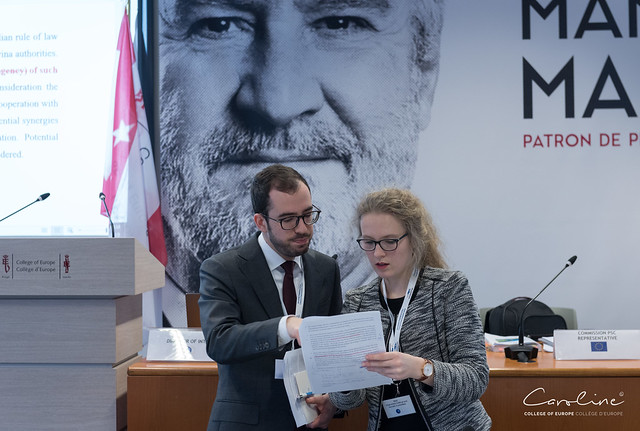From 4 to 8 February 2019, the students of the EU International Relations and Diplomacy Studies programme at the College of Europe in Bruges embarked on tense negotiations to find a response to two hypothetical crises at Europe’s borders. During an entire week, students put themselves in the shoes of staff members of the European External Action Service and the European Commission, Council Working Group experts, Ambassadors and Deputy Ambassadors to the Political and Security Committee, EU member states’ diplomats as well as journalists.
The participants discussed several topics, ranging from the de-escalation of tensions and the importance of mediation to the support of refugees. All parties drafted position briefs, option papers, Council Decisions and Conclusions as well as press releases, not to mention hundreds of posts on the sim game’s news and social networking platform Tuiter.
The negotiations, under the auspices of the High Representative and her team, were at times heated as every player tried to push its agenda forward. Despite the different starting positions, countless corridor conversations, long discussions in official and Gymnich meetings and never-ending debates over lunch, paved the way to concrete results. Some of the proposals and actions include the creation of an ‘Intergovernmental Emergency Refugees’ Resettlement’ programme, a Council Decision extending the mandate of a EUSR and the suggestion to launch a mediation initiative under UN auspices.
This simulation game is an integral part of the study programme. Directed by a negotiation expert, Alejandro RIBO LABASTIDA, and a political advisor from the EEAS, Quentin WEILER, it offers a realistic experience of EU crisis management by immersing students in a compact, high-pace exercise which allows them to apply and refine their knowledge on EU foreign policy and their bargaining skills acquired in the courses they followed in the first semester.
